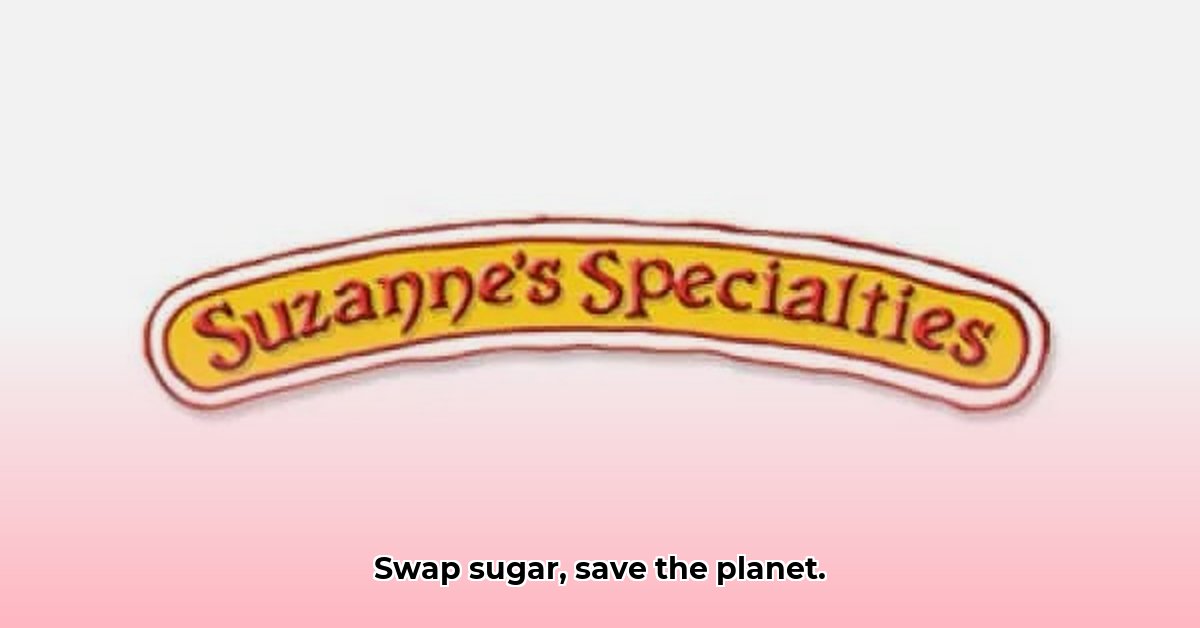
Suzanne's Specialties, established in 1984, has a long history in the alternative sweetener market. Their product range, including innovative low-sugar syrups like OryzaLow and TapiLow, caters to the growing demand for healthier options. But how sustainable are these sweeteners, truly? This article explores Suzanne's Specialties' commitment to sustainability, highlighting both their progress and the areas needing improvement.
A Sweet History, a Growing Concern
The company emphasizes using "high-quality organic and all-natural ingredients." While this resonates with environmentally conscious consumers, quantifiable data supporting these claims remains limited. This lack of readily available information on their environmental impact—similar to the need for gas mileage information when buying a car—presents a challenge to fully assess their sustainability efforts. This lack of transparency isn't unique to Suzanne's; it's a prevalent issue within the broader food industry, highlighting the need for greater accountability and standardized reporting. How can consumers be confident in a company's sustainability claims without access to comprehensive, verified data?
Sweet Innovation, Uncertain Impact
OryzaLow and TapiLow represent Suzanne's Specialties' response to the increasing market demand for better-for-you sweeteners. These low-sugar options are undoubtedly appealing to health-conscious consumers. However, a thorough life cycle assessment (LCA) (a detailed analysis of a product's environmental impact from cradle to grave) is crucial for understanding the true sustainability of these innovations. What are the resource demands of their production? What's their carbon footprint? Are the packaging materials sustainably sourced and recyclable? Without this data, evaluating their environmental impact remains impossible. This lack of readily available detailed information prevents a comprehensive assessment of their sustainability claims.
Working Together for a Sweeter, Greener Future
Achieving true sustainability in the sweetener industry requires a collaborative effort. Suzanne's Specialties, consumers, manufacturers, and regulators all have essential roles to play.
1. Suzanne's Specialties' Actions: The company should prioritize independent, third-party life cycle assessments (LCAs) for all its products. Obtaining relevant certifications, such as Fair Trade or organic, would bolster their credibility. Long-term, they should invest in research to develop even more sustainable sweeteners and explore closed-loop systems to minimize waste.
2. Consumer Responsibility: Consumers should demand transparency from companies, actively choosing products with clear and verifiable sustainability certifications. Supporting brands with strong environmental commitments is also crucial.
3. Food Manufacturer Engagement: Manufacturers should rigorously evaluate their supplier’s sustainability practices, actively integrating sustainable sourcing into their supply chains and investing in eco-friendly packaging.
4. Regulatory Involvement: Governments should strengthen labeling regulations, ensuring that sustainability claims are both accurate and easily understandable. Incentivizing sustainable practices through grants, tax breaks, or other mechanisms would further encourage companies to improve their environmental performance. Stronger environmental regulations and enforcement are also vital to ensure accountability.
The Evolving Story of Sweetness
Suzanne's Specialties’ contribution to the alternative sweetener market is undeniable. However, a lack of comprehensive public data hinders a complete evaluation of their sustainability efforts. This underscores the urgent need for greater transparency, not only from the company but also from regulatory agencies. Such transparency will foster trust and facilitate informed decisions from consumers and businesses, driving the industry towards a more sustainable future. The journey towards a genuinely sustainable industry is ongoing, requiring continuous research and a commitment to verifiable data. Proactive steps toward environmental responsibility, coupled with open communication, are essential for building trust and shaping a sweeter, greener future.
How to Verify Sustainable Sourcing Claims for Alternative Sweeteners
Key Takeaways:
- The demand for sustainable sweeteners is high, yet verifying claims often proves difficult.
- Transparency is paramount: Seek companies that openly share their supply chain information.
- Certifications offer some assurance, but independent audits provide a higher level of verification.
- Collective action from consumers, manufacturers, and governments is crucial.
"Independent third-party verification is crucial for building trust," says Dr. Anya Sharma, Sustainability Expert at the Institute for Sustainable Food Systems. "Consumers need access to verifiable data to make informed choices." This sentiment emphasizes the need for rigorous auditing to ensure legitimacy in sustainability claims.